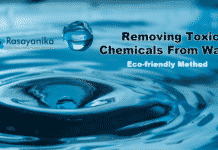Chemistry or Pharmacy – Which is Better?
Choosing a career path after completing a BSc degree can be both exciting and challenging.
For science graduates, two popular options often come to mind: Chemistry and Pharmacy. Both fields offer promising career prospects and opportunities for growth. However, determining which one is better depends on various factors and personal preferences.
In this article, we will explore the key aspects of both Chemistry and Pharmacy to help you make an informed decision about your future career.
Chemistry: The Science of Matter Chemistry is the study of matter, its properties, composition, and transformations. It delves deep into understanding the fundamental building blocks of the universe and the interactions between different substances. Chemists play a vital role in numerous industries, including pharmaceuticals, materials science, environmental science, and research.
A BSc graduate in Chemistry can explore various career paths. They can work as analytical chemists, research assistants, quality control technicians, or even pursue advanced studies and become researchers or professors. Chemistry offers a wide range of opportunities to contribute to scientific advancements and make a significant impact in areas such as drug discovery, renewable energy, and nanotechnology.
Pharmacy: Bridging Science and Healthcare Pharmacy, on the other
hand, focuses on the application of scientific knowledge to the field of healthcare. Pharmacists play a crucial role in ensuring safe and effective medication use, patient counseling, and promoting overall well-being. They work in various settings, including community pharmacies, hospitals, research institutions, and pharmaceutical companies.A BSc graduate in Pharmacy can pursue a career as a pharmacist, pharmaceutical sales representative, clinical research associate, or work in regulatory affairs. Pharmacy offers a unique opportunity to directly impact patients’ lives, contribute to the development of new drugs, and work as an integral part of the healthcare system. Factors to Consider When deciding between Chemistry and Pharmacy, it is essential to consider your interests, skills, and long-term goals.
Here are some factors to contemplate:
| Factors to Consider | Chemistry | Pharmacy |
|---|---|---|
| Education | Bachelor’s degree or higher | Doctor of Pharmacy (Pharm.D.) |
| Career Options | Academia, industry, research, government agencies, etc. | Retail pharmacy, hospital pharmacy, pharmaceutical industry, etc. |
| Work Environment | Laboratories, research facilities | Community pharmacies, hospitals, pharmaceutical companies |
| Patient Interaction | Limited direct patient interaction | Direct patient care and counseling |
| Salary Potential | Varies based on specialization and experience | Competitive salaries, potential for growth |
| Job Outlook | Strong demand, especially in research and development | Steady demand, driven by healthcare needs |
| Education Duration | Typically 3-4 years for a bachelor’s degree, advanced degrees add more years | 6-8 years (including undergraduate and Pharm.D. program) |
| Research Opportunities | Extensive opportunities for research and innovation | Limited research involvement, more focus on practical applications |
| Career Advancement | Opportunities for specialization and leadership roles | Potential for advancement into management or specialized clinical roles |
Subject Preference: If you have a keen interest in studying the composition, properties, and transformations of matter, Chemistry may be the right fit for you. On the other hand, if you are passionate about healthcare, patient interaction, and the pharmaceutical industry, Pharmacy might be more suitable.
Career Opportunities: Both fields offer excellent career opportunities. Chemistry provides a broader range of options, including research and development, academia, and industry. Pharmacy, on the other hand, focuses specifically on healthcare, offering roles such as clinical pharmacists, community pharmacists, or pharmaceutical industry professionals.
Personal Interests: Consider your personal strengths, such as analytical skills, attention to detail, or communication skills. Chemistry requires a strong foundation in scientific principles, critical thinking, and problem-solving abilities. Pharmacy, in addition to scientific knowledge, necessitates effective communication and empathy towards patients.
Further Education: Think about your aspirations for higher education. If you aim to pursue advanced degrees, such as a Ph.D. or research-oriented Master’s degree, Chemistry may be a better choice. Pharmacy offers opportunities for specialization through postgraduate programs, such as Pharm.D. or clinical pharmacy residencies.
Ultimately, the decision between Chemistry and Pharmacy depends on your passion, interests, and career goals. Both fields have their unique contributions to science and offer rewarding career paths. Assess your strengths, research the available opportunities, and consider where you envision yourself making a significant impact. Remember, regardless of the path you choose, continuous learning and dedication are essential for success in any scientific field. Embrace the journey, stay curious, and keep exploring the fascinating world of science.
Chemistry or Pharmacy Looking for latest chemistry and Pharma job openings, follow Rasayanika Facebook and Telegram and subscribe to our youtube channel for the latest updates on chemistry and Pharma jobs and much more


















































M.sc chemistry